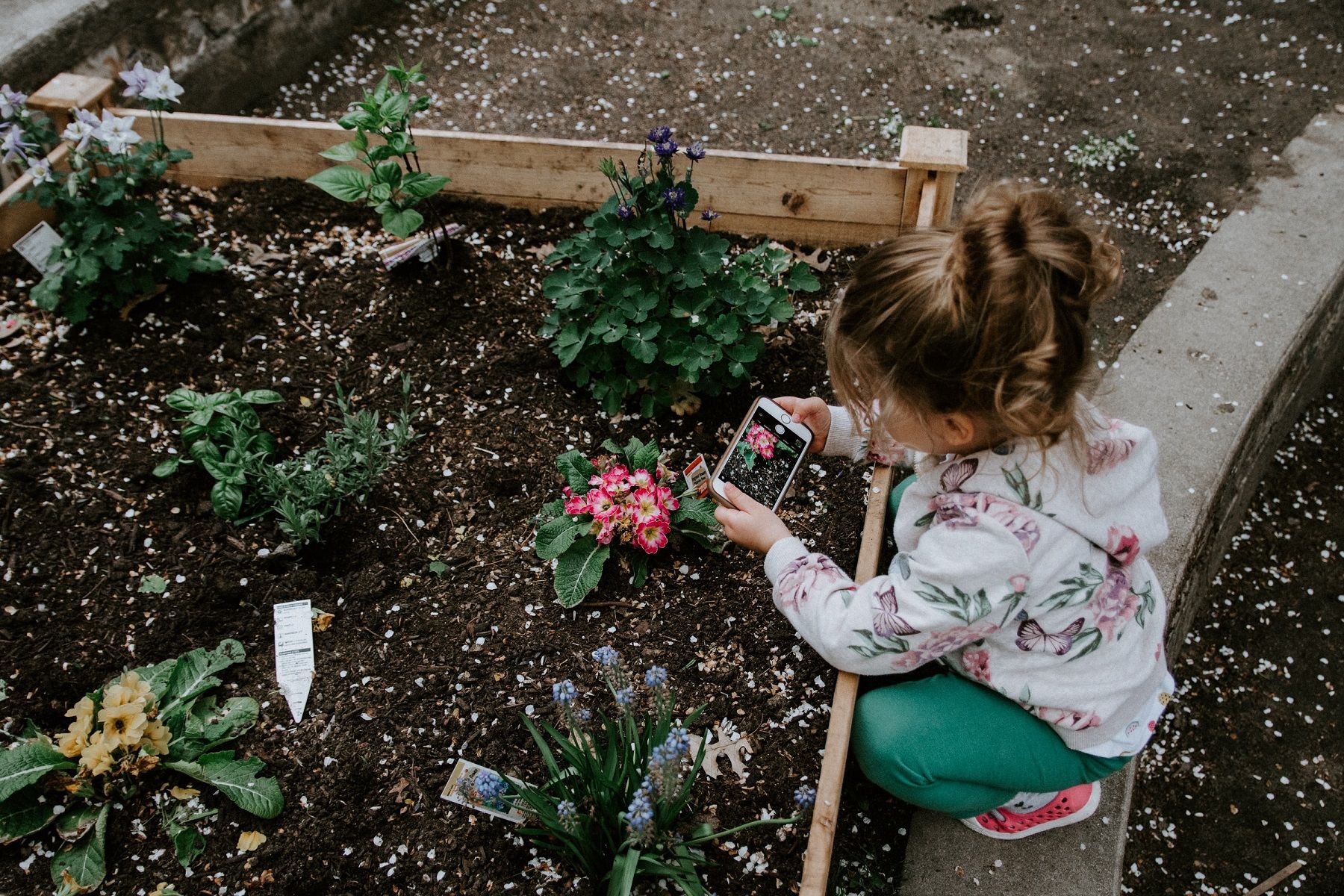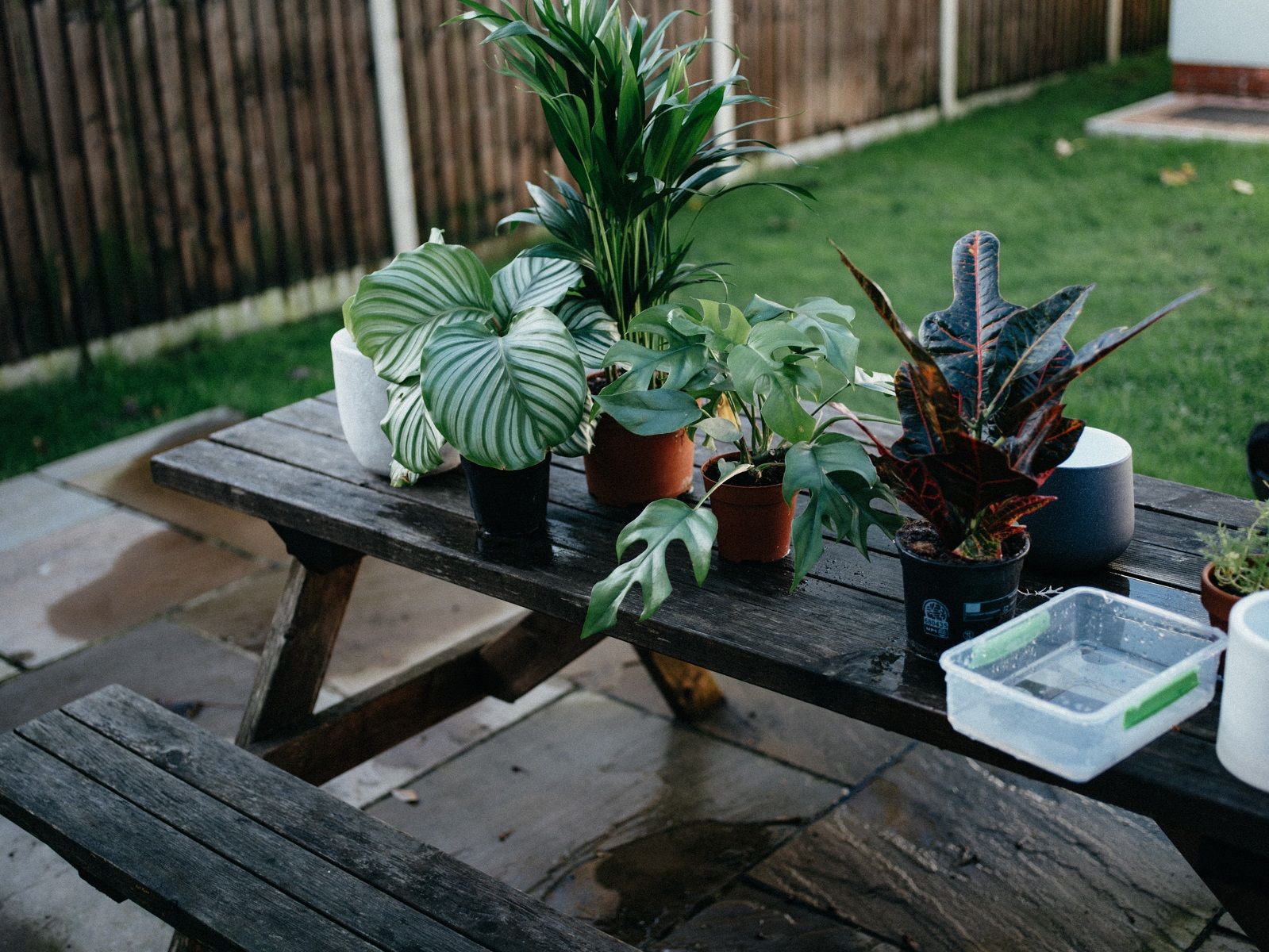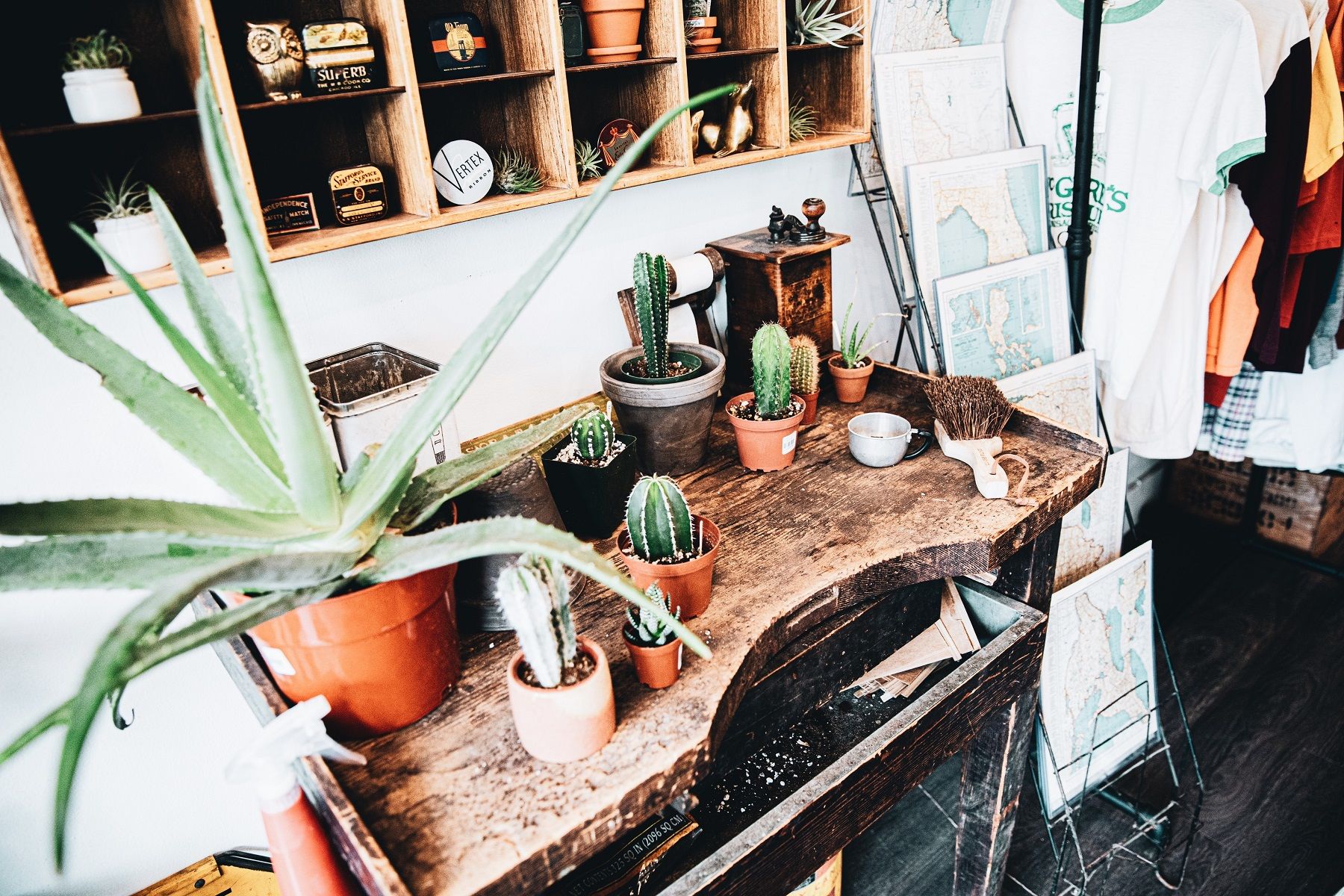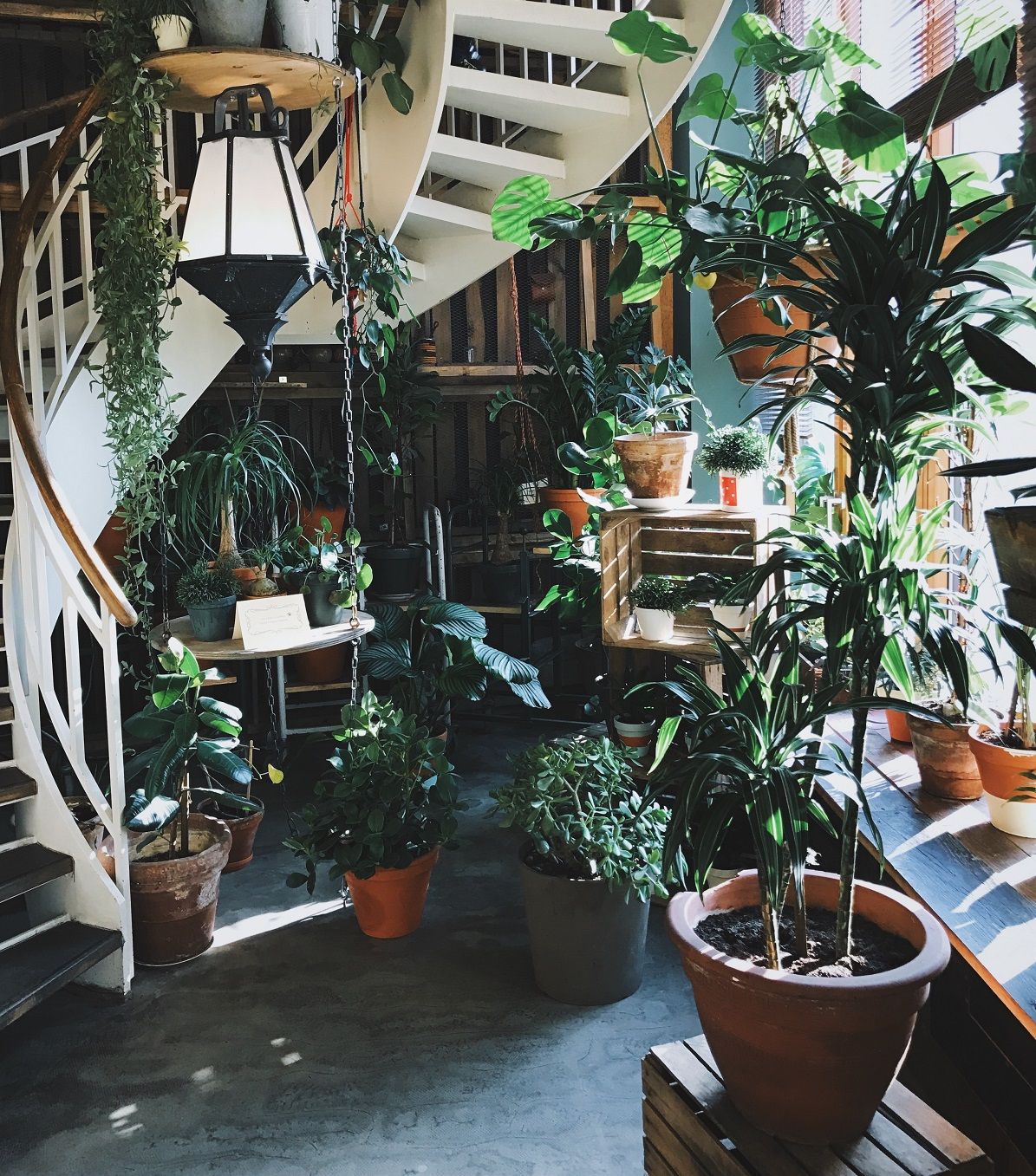Gardening is a medium that’s very dear to our hearts. It can literally change lives.
Take horticultural therapy, for example. Horticultural therapy is used to improve the mental (and physical) well-being of people who need a bit of TLC. Firmly believing that gardening can reinvigorate mind, body and soul (and research backs this up!), horticultural therapists are on hand to help people live better lives.
But what is horticultural therapy exactly, and how can it benefit you? In this article, we take a look!
What is horticultural therapy?
Horticultural therapy uses gardens and plants to boost mental and physical well-being.
Instead of sitting on a couch and chatting to a therapist, you are instead encouraged to visit a communal garden. The garden is turned into a safe space where people can mix and mingle with others (or work by themselves) as they cultivate their garden — and their soul.
The idea is that a horticultural therapist assigns tasks and activities to each gardener, with the aim being that these activities go some way towards improving the individuals particular health needs and goals.

Sounds great! What are the benefits of horticultural therapy?
Horticultural therapy has been around since the 1950’s. The reason it’s lasted so long is that it offers a wide range of benefits:
Horticultural therapy boosts your mood! Let’s face it, our mood is key to our day. Sometimes, however, our moods don’t change from day to day — they stick for well over a month. If you’ve been in a bit of a funk for some time now, horticultural therapy might be the thing that turns your frown upside down. After all, who doesn’t feel good after they’ve spent time outdoors, soaking up nature?!
Horticultural therapy boosts your social skills. Horticultural therapy is designed to be social, and you’re encouraged to communicate with others in your gardens. As such, it improves social skills, promoting social participation and self-awareness. Not just this, but horticultural therapy could arm you with better interpersonal skills that can help you land a different job. If you’ve always wanted to improve your people skills and meet new people, horticultural therapy could help.
Horticultural therapy lowers stress. Who needs more stress in 2021? No one! It seems we’re all a little too stressed at the moment. But what better way to reduce your stress levels than via nature? In fact, studies have shown that even just looking at plants for 3 minutes can be enough to lower stress and anxiety considerably. Just imagine what can happen if you spend your day cultivating your garden?
Horticultural therapy can help with memory. If you’re struggling with memory and cognition, I know how hard that can be. But horticultural therapy has been shown to reduce attention fatigue while at the same time boosting memory and cognitive awareness. Through horticultural therapy sessions, you might find also that your levels of concentration and alertness improve.
Cool. But is horticultural therapy right for me?
Horticultural therapy is pretty much for everyone who feels as though life has given them a bit of a kick lately. It’s for kids, for teens, for young adults; it’s for older adults, and it’s even for the elderly.
It’s aimed at people with all manner of mental, emotional, and physical problems, including learning disabilities, depression, ADHD, and even conditions such as dementia and stroke.
Ultimately, horticultural therapy is used as a sort-of rehabilitative program (or therapy) for spiritual, emotional, social, physical, and cognitive benefits. It connects you with others and restores your body, mind and soul. The outcome is always a positive one!

How can I start horticultural therapy?
There are really two ways. You can either join a garden project, or you can simply start gardening at home.
If you’d like to join a gardening project, you typically need to be referred by your doctor (as well as funded by them). Alternatively, you may be referred by your care professional or a social worker. These projects are run by horticultural therapists who gave completed specialist training programs, and are experts at what they do. They are qualified in horticulture, teaching, health, and social care.
If the place where you live doesn’t have any local horticulture therapy projects, worry not! You could join a community garden, organize one by yourself, or simply volunteer on a farm.
If you’d prefer to start your own little garden project at home, you can start with these 5 plant ideas that are easy to take care of and are especially useful for mental health.
Lavender
Lavender is one of the most calming plants there is, possessing as it does a sedative quality. It’s especially helpful if you’re having trouble sleeping. It also doesn’t need too much care!
Rosemary
Rosemary requires good low-maintenance ground cover because it can get quite large. But it’s ideal for memory problems and is overall a highly stimulating plant.
Early spring-flowering bulbs
Spring will soon be in the air, but before it arrives, why not chase those winter blues away with Iris reticulata? It won't be out until February, but when it does its sublime purples and blues will grant you a much-needed pick-me-up.
Thyme
Thyme is typically used to treat children who are struggling with mental conditions such as ADHD. But it’s great for adults too, and has an especially unique smell that’s super empowering for the senses.
Anything that reminds you of childhood
Lastly, I don’t know about you but whenever I feel especially gloomy and can’t seem to lift myself up, I like to reacquaint myself with the things I enjoyed as a child.
Surrounding yourself with plants that are evocative of childhood (whatever they may be for you) will stir your soul and, hopefully, take you back to a better time full of hope and optimism.

What's next?
There isn’t much else that’s quite as soul-stirring as horticultural therapy. Nor is there something as colorful and beautiful!
If you think horticultural therapy is right for you, the next step is to either find a local gardening project that’s suitable or work on creating your own gardening project at home. On that note, don’t forget to check our articles about practicing urban homesteading, starting a balcony garden, or 5 easy-to-grow-at-home vegetables!
For more gardening and mental health tips, be sure to sign up for NatureHub! 😉
Sign up


